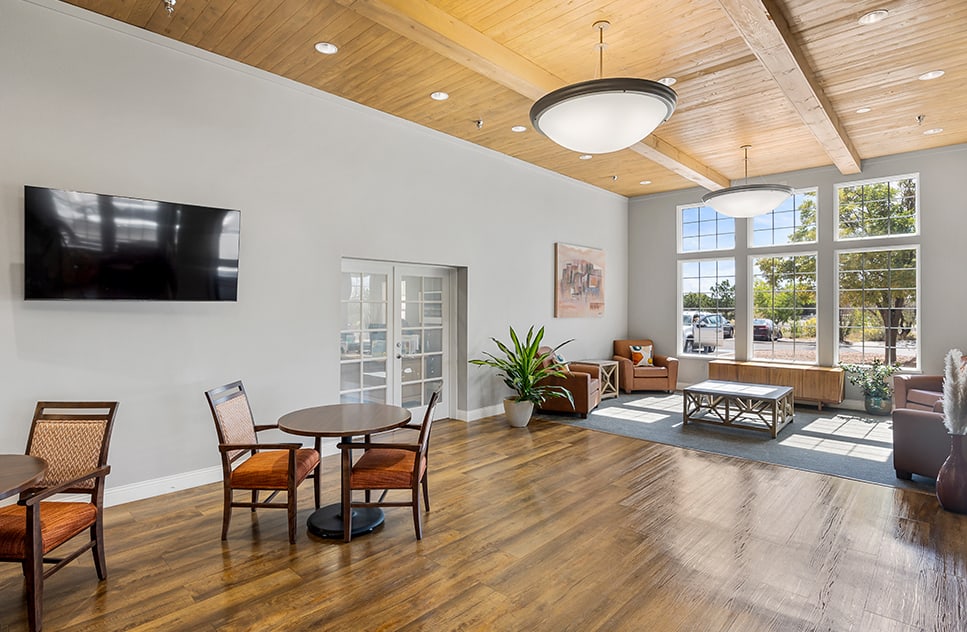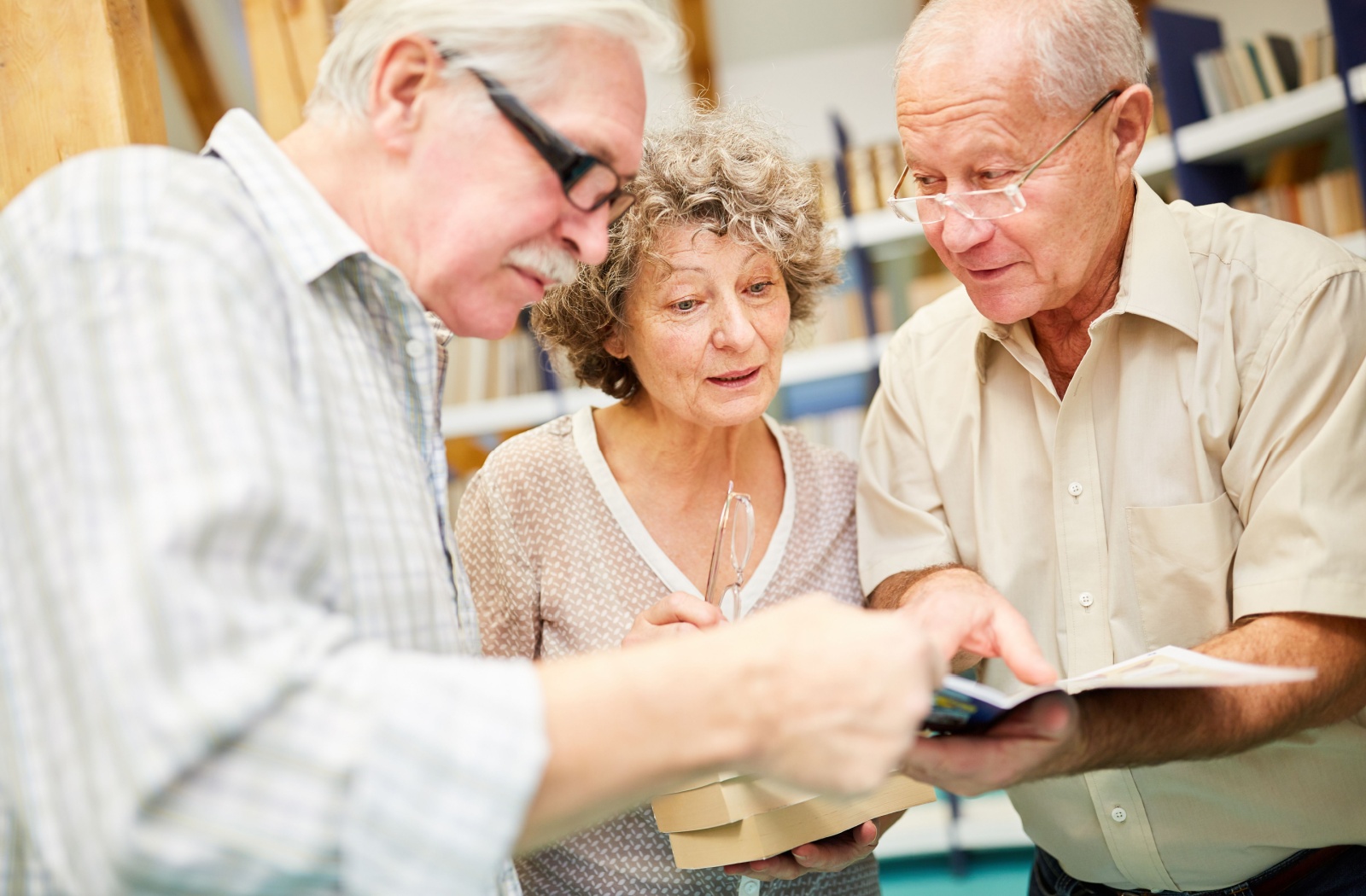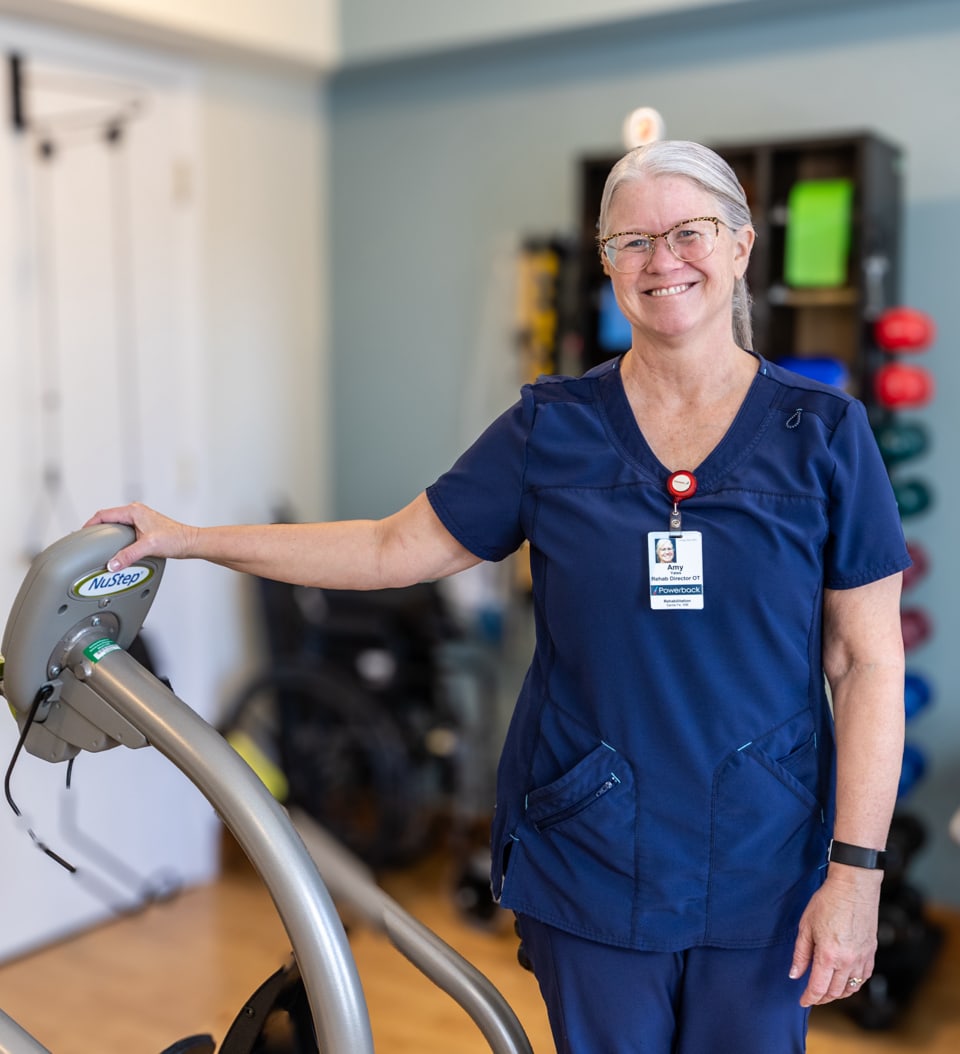Key Takeaways
- Mental stimulation supports cognitive health and emotional well-being throughout retirement.
- Simple daily activities, like reading, puzzles, and creative projects, can keep your brain engaged.
- Learning new skills and hobbies brings purpose and joy to your retirement years.
- Community resources and senior living programs offer structured learning opportunities.
- Starting small with realistic goals makes lifelong learning achievable and enjoyable.
Nurture Your Mind, Enrich Your Life
Retirement opens up a world of possibilities for growth, exploration, and discovery. After decades of working, you now have the time to pursue interests that may have been put on hold and explore new passions you never knew you had. At Kingston Residence of Santa Fe, our dedicated team understands that intellectual engagement remains a cornerstone of well-being throughout your golden years.
The answer is yes—keeping your mind active during retirement not only supports cognitive health but also brings joy, purpose, and meaningful connections to your daily life. Whether you’re living independently or considering assisted living or memory care options, engaging in regular learning activities can enhance your quality of life in remarkable ways.
Why Keeping Your Brain Active Matters in Retirement
Cognitive Benefits of Mental Stimulation
When you challenge your brain with new information and activities, you’re helping maintain the mental sharpness that keeps you feeling confident and capable. Learning activates different areas of your brain, creating new pathways that support memory, problem-solving, and decision-making skills.
Think of your brain like a muscle—the more you use it, the stronger it becomes. Regular mental exercise through reading, puzzles, or learning new skills helps maintain cognitive flexibility as you age.
Social and Emotional Rewards of Learning
Learning doesn’t have to be a solo activity. When you join classes, discussion groups, or hobby clubs, you’re building connections with others who share similar interests.
These social interactions combat loneliness and create a sense of belonging within your community. Sharing discoveries and achievements with others brings additional joy to the learning process.
How Active Learning Supports Overall Well-being
There’s something deeply satisfying about mastering a new skill or understanding a complex topic. This sense of accomplishment boosts self-confidence and provides a renewed sense of purpose.
Learning also gives structure to your days and creates something to look forward to. Whether it’s a weekly art class or a daily crossword puzzle, these activities add meaning and routine to retirement life.
Simple Ways to Exercise Your Brain Every Day

Reading and Writing Activities
Pick up that book you’ve been meaning to read, or explore a genre you’ve never tried before. Reading transports you to new worlds while keeping your mind engaged with complex characters and storylines.
Writing can be equally rewarding. Try keeping a journal, writing letters to family members, or even starting a memoir to share your life experiences with future generations.
Puzzles and Brain Games
Crossword puzzles, sudoku, and word games provide daily mental workouts that are both challenging and fun. These activities improve concentration, memory, and problem-solving abilities. Memory games specifically designed for older adults can be particularly beneficial for cognitive maintenance.
Many communities offer puzzle groups where residents gather to work on jigsaws or compete in friendly word game tournaments. It’s a great way to combine mental exercise with social interaction.
Creative Projects and Hobbies
Creativity knows no age limits. Painting, drawing, knitting, or woodworking engage different parts of your brain while producing something tangible you can be proud of.
These hands-on activities also provide a meditative quality that reduces stress and promotes relaxation. Plus, you’ll have beautiful handmade items to gift to family or display in your home.
Music and Art Exploration
Learning to play an instrument or exploring different art forms stimulates multiple brain regions simultaneously. Music, in particular, has been shown to support memory and emotional well-being. Participating in creative arts can create meaningful paths to healthy aging by reducing loneliness and increasing social connection.
Many people discover hidden talents in retirement. You might find you have a natural ability for watercolors or enjoy singing in a community choir more than you ever imagined.
Learning New Skills and Hobbies After Retirement
Language Learning for Seniors
Learning a new language opens doors to different cultures and ways of thinking. Modern language apps and online programs make it easier than ever to start this journey at your own pace.
Even basic conversational skills in another language can enhance travel experiences and provide a sense of accomplishment. Many communities offer language exchange groups where learners practice together.
Technology and Digital Skills
Technology doesn’t have to be intimidating. Learning to use tablets, smartphones, or computers connects you with family through video calls and opens up endless entertainment and learning opportunities.
Start with basic skills like email or web browsing, then gradually explore social media, online shopping, or digital photography. Many senior living communities offer technology classes designed specifically for older adults.
Crafts and Hands-On Projects
Crafting combines creativity with practical skills. Whether it’s quilting, pottery, jewelry making, or scrapbooking, these activities provide hours of focused engagement while creating lasting keepsakes.
Working with your hands also maintains fine motor skills and hand-eye coordination. Many crafters find the repetitive motions soothing and meditative.
Cooking and Gardening Adventures
Exploring new recipes or growing your own herbs and vegetables combines learning with practical benefits. Cooking engages all your senses and provides immediate, delicious rewards for your efforts.
Gardening connects you with nature while teaching you about plant care, soil composition, and seasonal growing cycles. Gardening activities for seniors can be adapted for various mobility levels and living situations, making this hobby accessible to everyone. Research demonstrates that gardening provides both physical and mental health benefits while building community connections.
Educational Opportunities and Community Resources
Online Learning Platforms and Courses
The internet brings universities and experts directly to your living room. Many colleges offer online courses specifically designed for older adults, covering everything from history to science to literature.
These programs often move at a comfortable pace and focus on learning for enjoyment rather than grades or deadlines. You can explore subjects that have always fascinated you without the pressure of traditional academic requirements.
Community Centers and Local Programs
Local community centers, senior centers, and libraries frequently host educational programs, lectures, and workshops. These in-person gatherings combine learning with social interaction and community involvement.
Topics range from historical lectures to financial planning workshops to health and wellness seminars. Check your community calendar regularly for new offerings that match your interests. Activities for seniors in Santa Fe include numerous cultural and educational opportunities throughout the city.
Libraries and Cultural Institutions
Libraries have evolved far beyond book lending. Many offer computer classes, book clubs, author talks, and cultural programs designed to engage and educate community members of all ages.
Museums, art galleries, and cultural centers also provide educational opportunities through guided tours, lectures, and hands-on workshops that deepen your understanding of art, history, and culture.
Volunteer Learning Opportunities
Volunteering allows you to learn while giving back to your community. Whether you’re helping at a local school, museum, or nonprofit organization, you’ll gain new perspectives and skills.
Many volunteer positions offer training that educates you about various fields or social issues. This type of experiential learning is often more engaging than traditional classroom settings.
How Senior Living Communities Support Active Learning
Educational Programs and Workshops
Senior living communities understand the importance of lifelong learning and often bring educational programs directly to residents. Guest speakers, workshops, and classes are regularly scheduled as part of community programming.
These programs are designed with older adults in mind, considering factors like hearing, vision, and mobility needs. Topics are chosen based on resident interests and requests. Our events calendar showcases the variety of educational and enriching activities available to residents.
Social Learning Groups and Clubs
Learning becomes more enjoyable when shared with others. Book clubs, discussion groups, and hobby clubs create natural opportunities for residents to learn together while building friendships.
These groups often become tight-knit communities within the larger residential community. Members support each other’s learning goals and celebrate achievements together.
Technology Access and Support
Many senior living communities provide computer labs, tablets, or Wi-Fi access along with staff support to help residents navigate technology comfortably. This removes barriers that might otherwise prevent older adults from accessing online learning resources.
Tech support staff understand that older adults may need more patience and repeated instruction, creating a comfortable learning environment free from judgment or frustration.
Creating a Learning-Friendly Environment
The physical environment plays a role in successful learning. Well-lit spaces, comfortable seating, and quiet areas for concentration all support educational activities.
Communities also stock libraries, craft rooms, and activity spaces with materials and supplies needed for various learning pursuits, making it easy for residents to pursue their interests spontaneously.
Starting Your Learning Journey Today
Setting Realistic Learning Goals
Begin with small, achievable goals that build confidence and momentum. Instead of committing to reading 50 books this year, start with one book per month or even one chapter per week.
Realistic goals prevent frustration and help you develop sustainable learning habits. You can always increase your goals as you build confidence and enthusiasm.
Finding What Interests You
Think about topics that have always intrigued you or skills you’ve wanted to develop. Your learning journey should bring joy, not stress, so choose subjects that genuinely excite your curiosity.
Don’t worry about practical applications or career advancement. This is your time to learn purely for the pleasure of discovery and personal growth.
Building a Daily Learning Routine
Consistency matters more than intensity when it comes to lifelong learning. Set aside 15-30 minutes each day for learning activities, whether it’s reading, practicing a language, or working on a puzzle.
Make learning a natural part of your daily routine, just as you would have your morning coffee or take an evening walk. Small daily efforts lead to significant long-term results, keeping your mind active and engaged.
A Community Where Learning Never Retires
At Kingston Residence of Santa Fe, we believe that learning continues throughout life and brings immeasurable joy to your retirement years. Our community offers numerous opportunities for intellectual engagement, from educational programs to social learning groups, all designed to support your desire for growth and discovery.
Contact us today to schedule a tour and see how our supportive environment can enhance your learning journey while providing the care and services you need to thrive in retirement.






